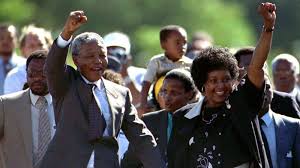EXTERNAL FACTORS FOR AFRICAN NATIONALISM
Nationalism in Africa was the desire of African people to terminate all foreign rule, Basically nationalism is the politically will of the people of Africa in apposition of foreign domination but in favor of Africa rule.
Nationalism is the feeling of national consciousness by the people that they are members of a nation state and desire freedom from colonial rule.
Nationalism in the African context refers to a desire of African people to terminate all foreign rules and live under a government of their own choice so as to preserve their political, economic and social interest.
The hostility against colonial rule was due to the fact it was hindrance in the struggle for the creation of nation state, hence nationalism was identified with struggle for independence.
National consciousness was a gradual process i.e. was not over right phenomena.
Phases of Nationalism conciorine
1. Before 1945 – The process of decolonization or national liberation was fundamental in Africa. It allowed African state to regain their independence which they had lost for more half century
Nationalism before 1945 was elitist i.e. it was not directly related to a political goal. It was intended to seize political power. The main aim of the Africans at this stage was to have reforms in colonialism such as end of land alienation, taxation and forced labor.
2. After 1945 – The rise of Africa nationalism data back to the period of colonial conquest and the imposition of colonial rule on one hand and primary African resistance against colonial rule on the other hand . But later the intensification of exploitation stimulated the nationalistic struggle.
Nationalism was seriously nationalistic. It aimed at over throwing alien rule.The African were not interest in just changes, but complete independence. These were those that stimulated hostility from within Africa.

The rise of African nationalism was also influenced by global situation, there were forces operating from outside Africa which played a big role in the rise of African nationalism.
(i) The role of the United Nations (UN).
The end of WWII was led to the formation of the international organization like united Nations which was against all forms of exploitation and colonialism in different part of the world, this organs was played the great role in the independence struggle in different parts of Africa because this body helped different colony to regain back their independence and demise colonialism in different parts of Africa because it was the destructive and distance for the development in Africa.
– A part from that UNO has ordered some colonial powers to prepare the territory to the independent. Example British was given Tanganyika and ordered to prepare the territory until it become capable to be Independent.
The United Nations Organization was formed in 1945 with the main objective of maintaining peace in the world. The UN formed the Trusteeship council which had to make sure that all colonies regain their independence by using peaceful means. Tanganyika is one of the countries that benefited from the United Nations because it was trusteeship territory.
(ii) The Pan Africanism movement.
This movement was formed in the United States of America by the Black people in Diaspora. The main goal of the movement was to fight for the abolition of slave trade and slavery, but after the abolition of slave trade it turned into a liberation movement whereby it advocated for nationalism.
The movement argued that, “Africa was Africans” After the independence of Ghana in 1957, that Pan Africanism movement shifted its headquarters to Accra where it spearheaded the independence of many African countries.
(iii) The rise of the United States of America.
The end of WWII, market the new power coming up USA, took the part of Britain USA had no colonies in Africa and From there it needed areas for getting raw materials, markets and areas for investment to get their colonies she had to encourage the so called “open door policy”. She encourage other European countries to grant independence for their colonies.
-Much more USA adapted capitalism Ideology to ensure such Ideology spread through the world, she decided to support nationalism/decolonization movement as the best way to make expansionism and spread the idea of the capitalism
(iv) The role of the USSR
The WWII ended with the rise of socialist, USSR was making a step towards Industrial development hence demanded areas for the economic motives like areas for raw material, market and capital investment. This need made USSR to support decolonization process.
(v) China revolution
The revolution of China 1949 unfitness the rising of the plotetarial and peasant forming a government of socialist since socialism was against colonialism it supported decolonization process in different parts of the world.
After the Second World War the USA emerged as the leading economic and political power. The reasons were; World War Two was not fought in America, hence it did not experience destruction of industries and infrastructure.
During the war the, USA was the supplier of war requirement in Europe hence it gained a lot of profits. The USA introduced the open door policy through which the USA needed raw materials, markets and areas for investments from overseas.



























































